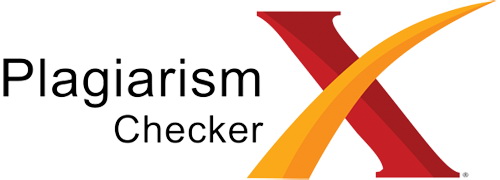The Effectiveness of Using Quiz Bot as an Online Learning Method
DOI:
https://doi.org/10.53863/ejou.v3i02.487Keywords:
Quiz Bot, Learning Management System (LMS), Structure.Abstract
The COVID-19 pandemic has significantly altered the educational landscape. Distance learning, which used to be carried out face-to-face, needs attractive and simple-to-use learning resources for both teachers and students. Telegram is a platform that is simple to use and has a lot of benefits. Mastery and use of technology to support successful learning has become a necessity and is increasingly educative, especially during the COVID-19 pandemic. Teachers as the main actors in driving educational progress are required to keep up with the times and be creative in the use of media in the form of a Learning Management System (LMS). Therefore, this article aims to explain about the provision of the use of Telegram Quiz Bot as a means of teaching English material, especially structure material. The use of this media is carried out by Telegram users with high school age who have an interest in learning English on Telegram. This study used a descriptive qualitative approach. Data obtained from active Telegram users with the results of each structure question given 45 seconds of time with the results obtained from 20 participants, 3 people 90% correct, 7 people 50% correct and the remaining 30%. This is because Quiz bot has several more benefits as a medium for learning listening material, namely providing a means of making multiple choice questions, polling features, quiz descriptions, text and images. In addition, the quiz bot is easy to use and there is an audit facility in it.
Keyword : Quiz Bot, Learning Management System (LMS), Structure
References
Azis, Y., & Susanti, S. (2014). The influence of blended learning, learning styles against understanding math concepts. International Conference On Research, Implementation And Education Of Mathematics And Sciences, Yogyakarta State University. Yogyakarta.
Hanafi, Muhammad. (2017). Membangun Profesional Guru dalam Bingkai Pendidikan Karakter. Jurnal Ilmu Budaya. Volume 5, Nomor 1 Juni 2017. ISSN 2354-7294
Hakim, M. (2019). The use of Telegram to facilitate Students vocabulary learning at SMPN 1 Surabaya. UIN Sunan Ampel Surabaya,
Heidari Tabrizi, H., & Onvani, N. (2018). The impact of employing Telegram app on Iranian EFL beginners’ vocabulary teaching and learning. Applied Research on English Language, 7(1),1-18.
Hernawan, B. (2020). Telegram Messenger Lengkapi Fitur Pols dengan Quiz Mode. Jakarta: Kompas Gramedia.
Mardiyanto, Sigit dkk. 2014. Pengaruh model active learning dengan strategi team quiz terhadap hasil belajar siswa pada standar kompetensi melakukan pekerjaan mekanik dasar di SMK Negeri 5 Surabaya. Jurnal Pendidikan Teknik Elektro. ISSN: 2252 – 5149. Vol.3/no.1/2014.
Pianta , R., & Hamre, B. (2009). Classroom processes and positive youth development: Conceptualizing, measuring, and improving the capacity of interactions between teachers and students. New Directions for Youth Development, 121, 33-46.
Sulistyanto, I., & Prellani, N. (2020). The Effectiveness of Using Bot Telegram in Teaching 454 Reading Narrative Text at the Tenth Grade of SMAN 1 Grogol Kediri. Jurnal Riset Teknologi dan Inovasi Pendidikan (Jartika), 3(2), 195-200.
Surat Edaran Menteri Pendidikan dan Kebudayaan (Mendikbud) Republik Indonesia No. 4 Tahun 2020 tentang Pelakasanaan Kebijakan Pendidikan dalam Masa Darurat Penyebaran Covid-19. http://pgdikmen.kemdikbud.go.id/read -news/surat-edaran-mendikbudnomor-4-tahun-2020
Surya, HM. (2004). Kapita Selekta Kependidikan SD, Universitas Terbuka.
Sutardi. 2013. Peningkatan Minat dan Hasil Belajar Siswa dengan Metode Pembelajaran Quiz Team “Think Fast Do Best” pada Materi Reaksi Oksidasi-Reduksi di Kelas X MAN Model Singkawang. Kaunia. ISSN: 2301–8550. Vol.9/no.2/Oktober/2013
Downloads
Published
How to Cite
Issue
Section
License
Copyright (c) 2023 Atik Muhimatun Asroriyah,Siti Maskuroh,Firma Pradesta Amanah

This work is licensed under a Creative Commons Attribution-ShareAlike 4.0 International License.
Authors retain copyright and grant the journal right of first publication with the work simultaneously licensed under a Creative Commons Attribution-ShareAlike 4.0 International License that allows others to share the work with an acknowledgment of the work’s authorship and initial publication in this journal














